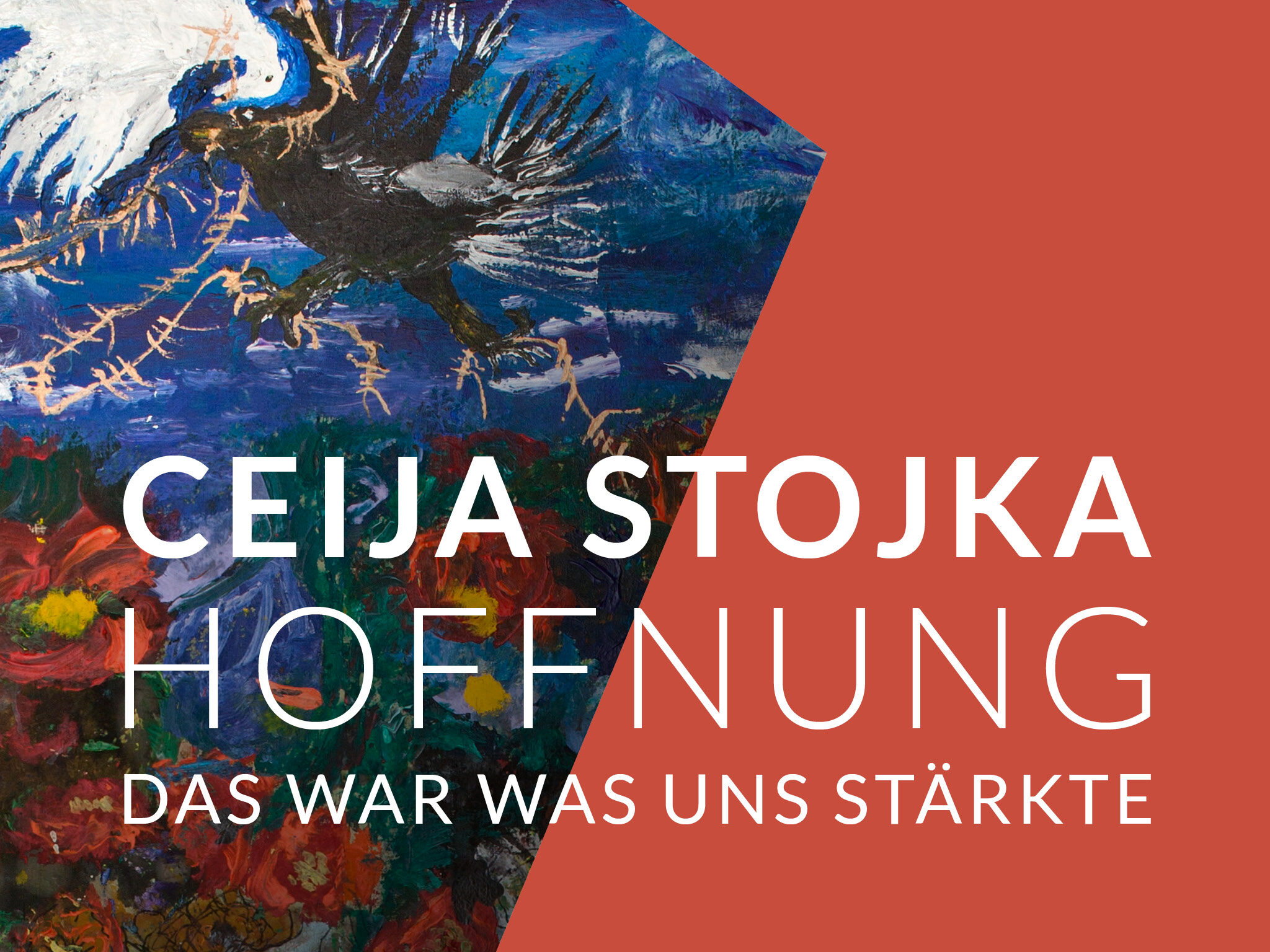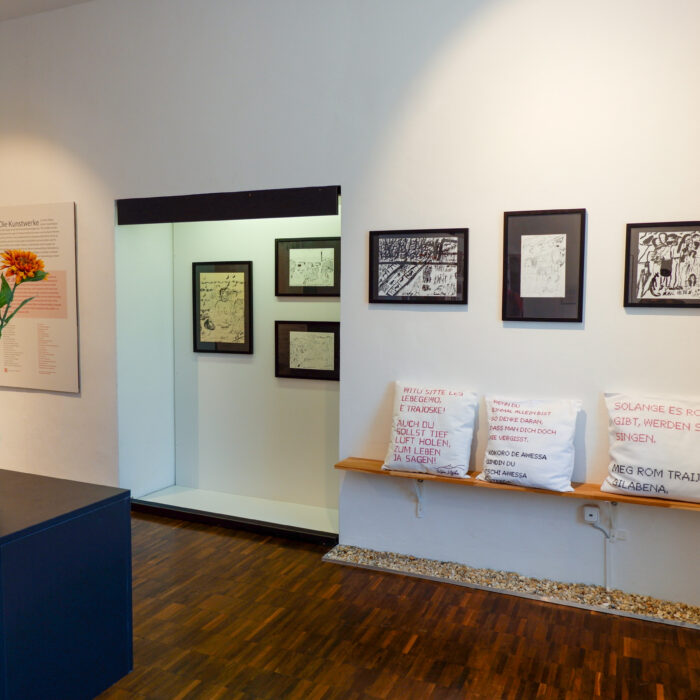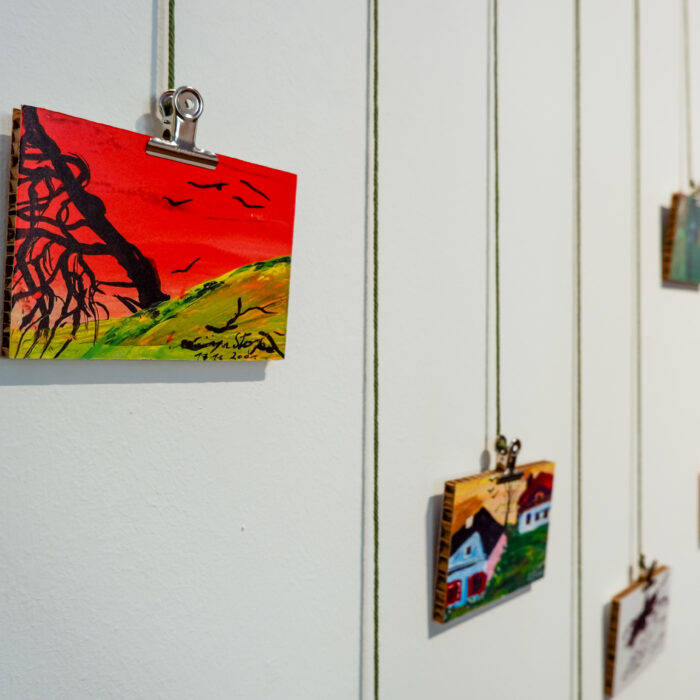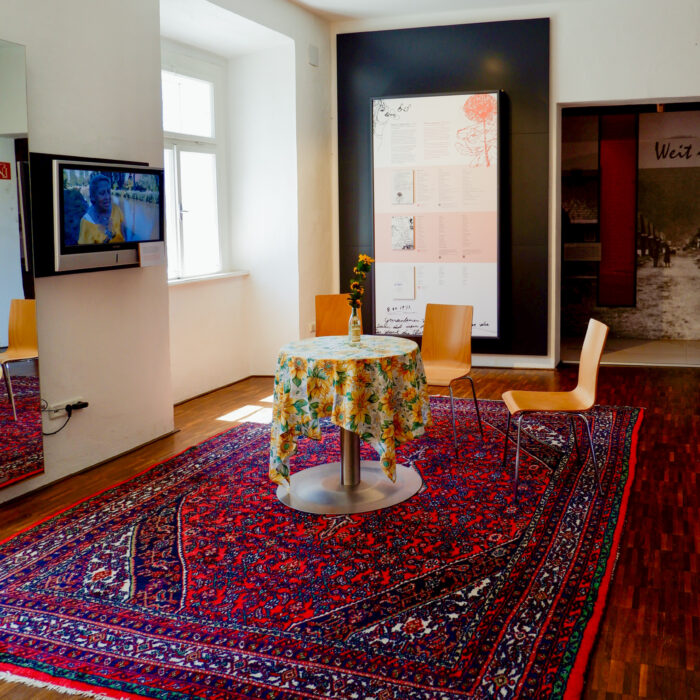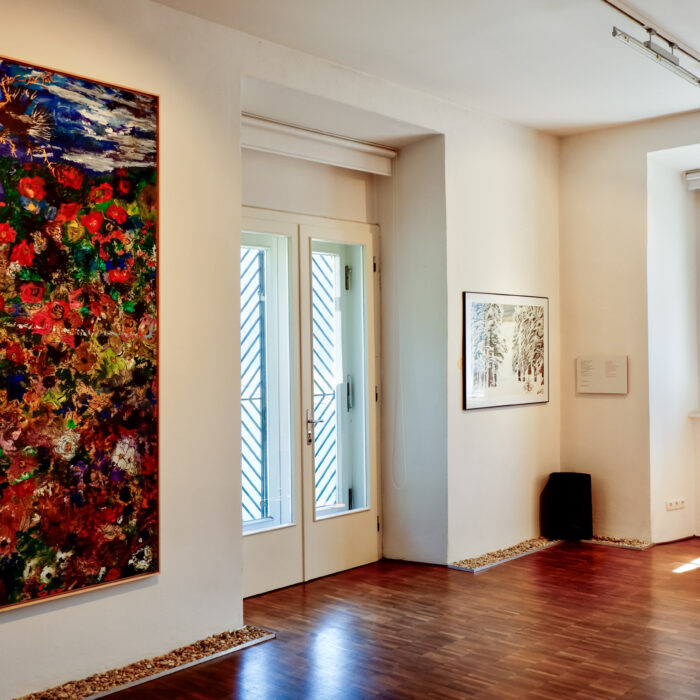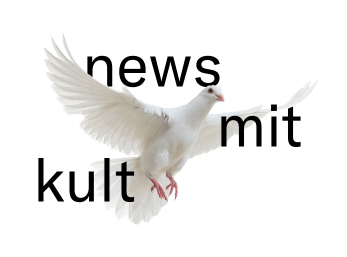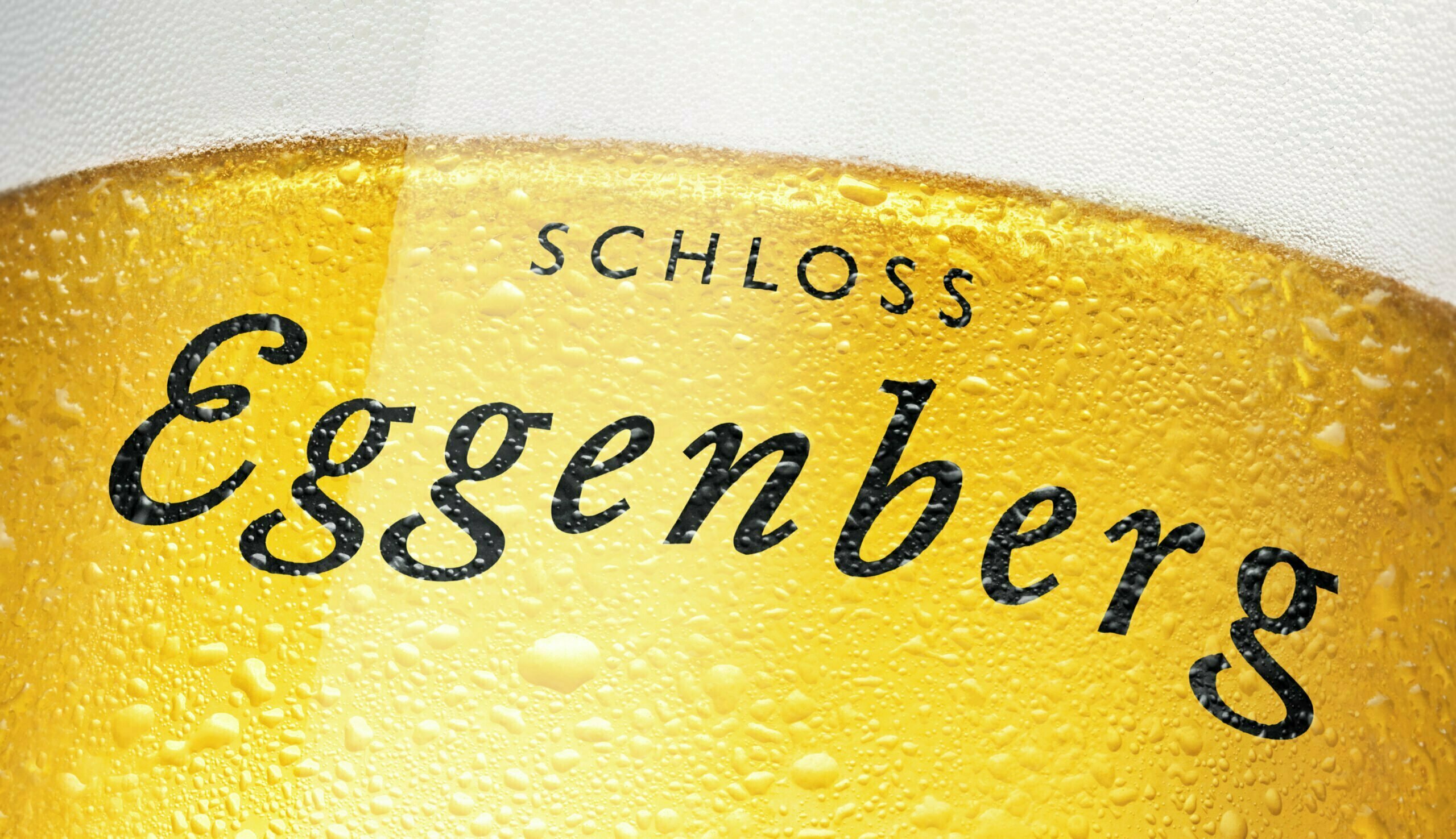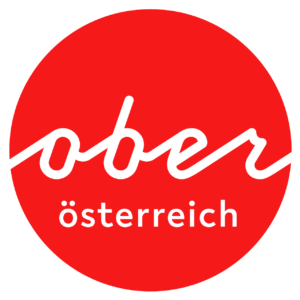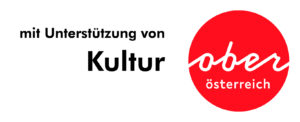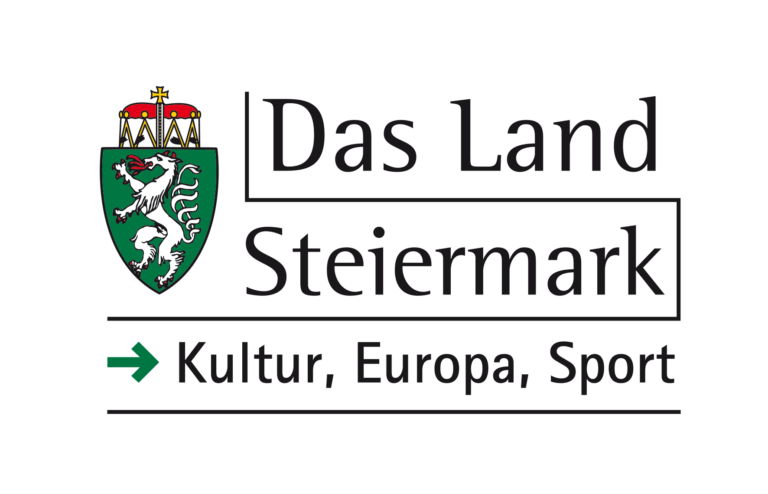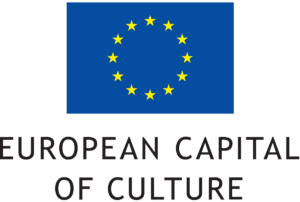The exhibition, which brings together visual art, music, and social themes related to Austria, centers on the work of Ceija Stojka (1933–2013) — a woman, artist, and activist who is currently one of Austria’s most sought-after artists in the international art scene. In Ceija Stojka’s work, life radiates, and in the end, hope endures. The exhibition showcases paintings and texts that tell the story of this unique artist, activist, and Romni. Her visual art reflects her personal connection to her history as a child before, during, and after the National Socialist era.

By loading the video, you agree to YouTube’s privacy policy.
Learn more
Her unpublished diaries provide a personal perspective on contemporary Austrian history at the end of the 20th century. The goal of the project is to present this perspective in a European and international context and to encourage audiences to broaden their horizons.
The exhibition was introduced with a diverse program over the opening weekend, including a concert by the Harri Stojka Acoustic Drive Trio. Additionally, the opening featured the screening of Küchengespräche mit Rebellinnen (“Kitchen Conversations with Female Rebels”) by filmmaker Karin Berger, as well as a discussion and reading on the exhibition with Dr. Winfried Garscha from the Documentation Centre of Austrian Resistance (DÖW). Other events included a presentation on the NEH Collaborative Research Project focused on Ceija Stojka’s diaries by Lorely French and Carina Kurta, as well as a reading by Nuna Stojka and Birgit C. Krammer.

